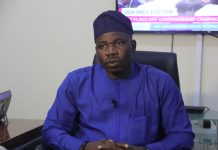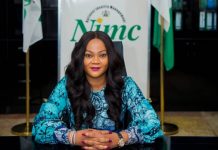The Federal Government may have to ask the Distribution Companies (Discos) to give up some of their holding in the privatized power entities and allow serious investors to run them efficiently and deliver more gains to the economy.
This is one of the options on the table to get the power distribution network deliver on privatization goals, Alex Okoh, Director General, Bureau of Public Enterprises (BPE) said on Monday.
“We have not discussed that option formally but we are not taking any option off the table,” Okoh said on the side-lines of an investor’s forum organized by the BPE, according to BusinessDay.
“If the Discos currently because of the way that their balance sheet has been compromised are not able to raise sufficient investment capital to improve the distribution network, the provision of meters, and all that, then we have to look at the possibility of how to admit other investors who may have the capacity financially and in terms of the technical expertise to improve the distribution infrastructure,” he added.
The Federal Government owns 40 percent stake in 10 of the DisCos and fully owns Yola DisCo.
Analysis of the financial statements of some of Nigeria’s electricity distribution companies (DisCos) indicate that they reported losses of over N196.23 billion to end the 2016 financial year.
This compares with a loss of N104.69 billion they recorded in the 2015 financial year.
DisCos in Africa’s largest economy are being squeezed by surging operating expenses and finance costs.
A breakdown of the figures shows Eko Disco, Kaduna Disco, Ikeja Disco, Abuja Disco, Ibadan Disco, and Benin Disco recorded losses of N28.66 billion, N17.90 billion, N65.63 billion, N47.44 billion, N24.98 billion and N11.62 billion as at December 2016.
Okoh said government was tired of the situation where the “general populace is receiving the wrong end of the stick all the time,” stressing that what the public wants is improved power supply and power delivered at a reasonable cost.”
DisCos have ascribed much of the challenges in the sector to the absence of a cost reflective tariff, which essentially forces them to price power below the cost of production and in the process balloons their debts.
Data from the financial statements show that the firms are highly indebted to suppliers or creditors as total and other payables spiked by 97.47 percent to N472.88 billion in December 2016 from N239.57 billion as at December 2015.
Okoh confirmed that the BPE and other agencies that are involved in supervising the power sector are discussing to ensure that they are able to build a bridge that allows, first efficient service delivery and second, cost recovery for the investors in the sector.
He said there is a proposal to set up a coordinating body for all of those agencies responsible for power sector reform, to be in constant dialogue with the key private sector players in the sector, according to the DG.
“Privatisation of the power sector isn’t going right way and hasn’t achieved its full objective, I will be the first to admit,” Okoh said blaming industry issues, some of which are related to power pricing, efficiencies of the current operators of the discos in terms of how they enumerate and meter their customer base.
He also listed infrastructural issues, in terms of the distribution infrastructure- upgrade and expansion.
He admitted that electricity tariff at the moment are not at the level it should be to cover for the service delivery, but that the issue is the appropriate pricing which has not been properly worked out if the efficiency that the discos should have brought into the system is factored in.
“So until we are able to pull all of these various aspects that contribute to the efficiency of the power sector especially at the distribution end of the chain, it will be very difficult to determine what the appropriate pricing or tariff should be,” he however stressed.
In 2016, DisCos reported Aggregate Technical and Commercial Collection (ATC&C) losses of 40 per cent, one of the highest in the world.
In 2017, DisCos could only settle on average 30 percent of their market invoice, forcing the government to create a N701bn payment assurance guarantee for gas suppliers.
The Federal Government plans to inject N871bn into the power sector this year according to its 2018 – 2020 medium term expenditure framework and fiscal strategy paper in line with its Power Sector Recovery Programme, (PSRP) to assuage these market losses.
A breakdown of the figure indicates that Central Bank of Nigeria (CBN) Financing facility will account for N310 billion. The sum of N61 billion would be contributed through the World Bank’s Program-for-Results, a financing scheme that links disbursement of funds to programme results.
The Federal Government will also make available budgetary provision in the sum of N194 billion while governments power assets ownership restructuring and settlement of DisCos debts will account for N315 billion.










